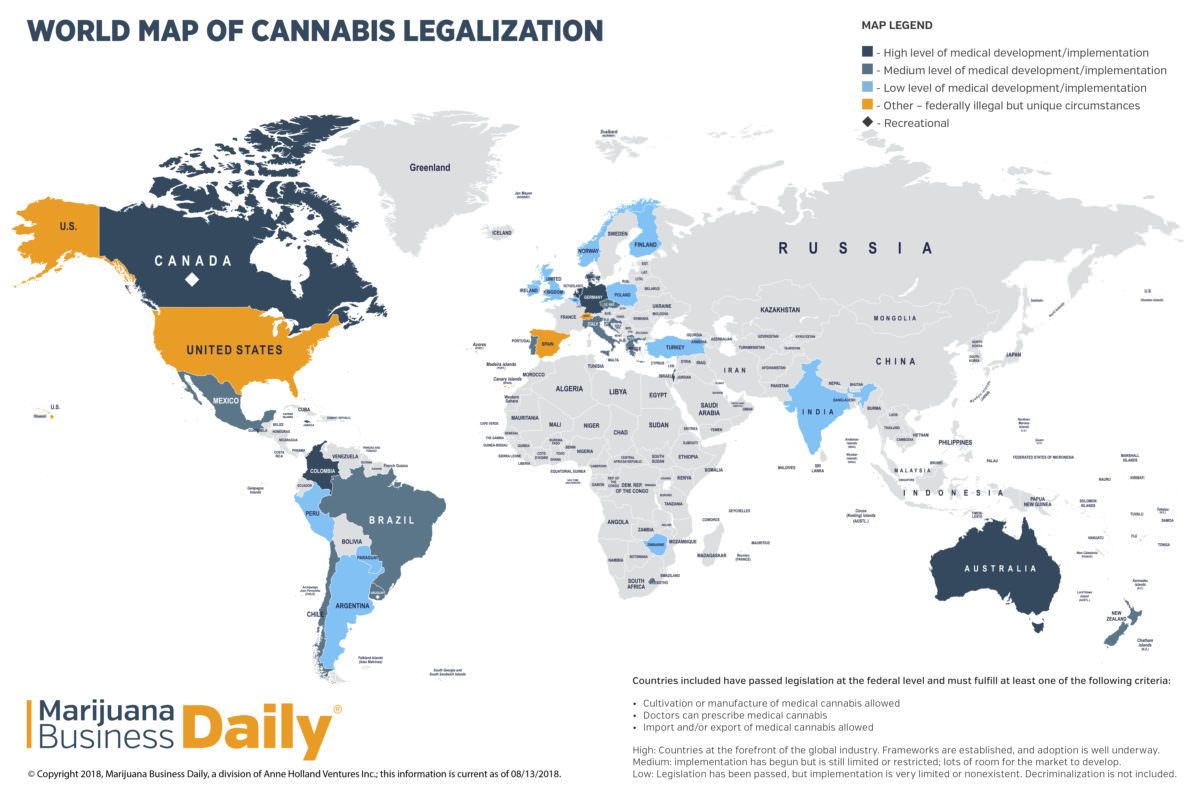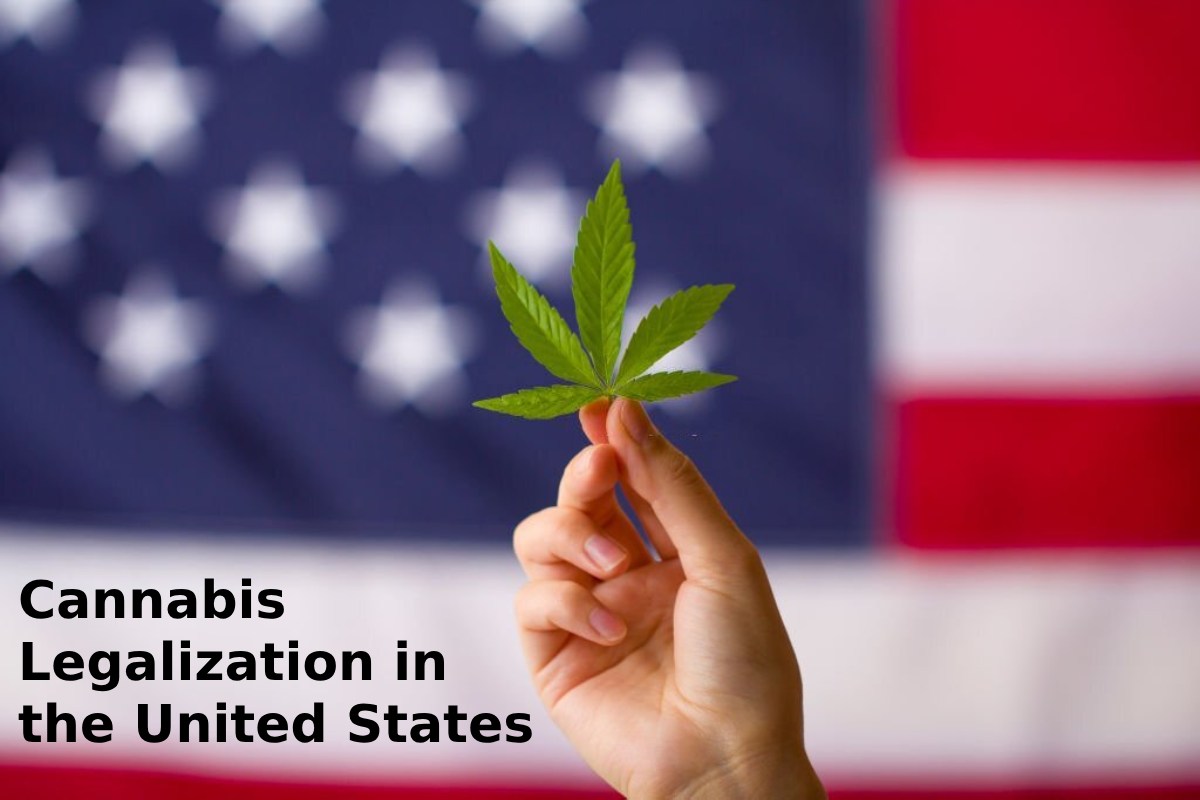Navigating the Shifting Landscape: A Comprehensive Guide to Cannabis Legalization Worldwide
Related Articles: Navigating the Shifting Landscape: A Comprehensive Guide to Cannabis Legalization Worldwide
Introduction
With enthusiasm, let’s navigate through the intriguing topic related to Navigating the Shifting Landscape: A Comprehensive Guide to Cannabis Legalization Worldwide. Let’s weave interesting information and offer fresh perspectives to the readers.
Table of Content
Navigating the Shifting Landscape: A Comprehensive Guide to Cannabis Legalization Worldwide

The global landscape of cannabis legalization is in constant flux, with a growing number of countries and regions embracing a more progressive approach to this once-prohibited substance. This evolving landscape presents a complex picture, requiring a clear understanding of the various legal frameworks and their implications.
This comprehensive guide aims to provide a detailed overview of the current state of cannabis legalization across the globe, exploring the nuances of different legal frameworks, highlighting key developments, and examining the potential benefits and challenges associated with this evolving regulatory landscape.
Understanding the Legal Spectrum
The legal status of cannabis varies significantly across the world, encompassing a spectrum of approaches ranging from complete prohibition to full legalization.
-
Prohibition: In many countries, cannabis remains illegal for all purposes, with strict penalties for possession, cultivation, and distribution. This approach often stems from historical concerns about public health, safety, and societal morality.
-
Medical Cannabis: A growing number of countries have legalized cannabis for medical use, allowing patients with specific medical conditions to access cannabis-derived products under the supervision of healthcare professionals. These programs typically involve strict regulations regarding the production, distribution, and use of medical cannabis.
-
Recreational Cannabis: In some jurisdictions, cannabis has been legalized for recreational use, meaning adults can legally purchase, possess, and consume cannabis products for non-medical purposes. This approach often involves a regulated market with licensed producers, retailers, and testing procedures.
-
Decriminalization: Some countries have decriminalized cannabis, meaning possession of small amounts of cannabis is no longer a criminal offense but may still be subject to fines or other administrative penalties. This approach aims to reduce the burden on the criminal justice system and divert resources towards public health initiatives.
A Global Snapshot: The Cannabis Legalization Map
North America:
- United States: The United States has witnessed a significant shift in cannabis policy in recent years. While federal law still prohibits cannabis, many states have legalized cannabis for medical or recreational use, creating a patchwork of regulations across the country.
- Canada: Canada became the first G7 country to legalize recreational cannabis in 2018, creating a national framework for the production, distribution, and sale of cannabis products.
South America:
- Uruguay: Uruguay became the first country in the world to legalize recreational cannabis in 2013, establishing a regulated market with state-controlled production and distribution.
- Colombia: Colombia has legalized medical cannabis and is developing a framework for recreational cannabis legalization.
Europe:
- Netherlands: The Netherlands has a long history of decriminalizing cannabis, allowing for the sale of cannabis in licensed "coffee shops" under strict regulations.
- Luxembourg: Luxembourg legalized recreational cannabis in 2023, allowing adults to possess and consume small amounts of cannabis.
- Germany: Germany legalized recreational cannabis in 2023, paving the way for a regulated market with licensed producers and retailers.
Asia:
- Thailand: Thailand legalized medical cannabis in 2018, and is currently exploring the possibility of legalizing recreational cannabis.
- Georgia: Georgia decriminalized cannabis in 2018, allowing for personal possession of small amounts of cannabis.
Africa:
- South Africa: South Africa has legalized medical cannabis, and is exploring the potential for recreational cannabis legalization.
Oceania:
- Australia: Australia has a complex legal landscape, with some states and territories legalizing medical cannabis and others exploring recreational legalization.
- New Zealand: New Zealand legalized recreational cannabis in 2020 through a referendum, establishing a regulated market for the production, distribution, and sale of cannabis products.
Understanding the Dynamics of Change
The global movement towards cannabis legalization is driven by a confluence of factors:
- Shifting Public Attitudes: Public opinion regarding cannabis has evolved significantly, with increasing support for legalization, particularly for medical use.
- Economic Opportunities: Legal cannabis markets create new economic opportunities in areas such as cultivation, processing, distribution, and retail.
- Social Justice Concerns: Prohibition has disproportionately affected marginalized communities, and legalization is seen as a way to address historical injustices and promote social equity.
- Health Considerations: Legalization allows for greater control over the quality and safety of cannabis products, potentially reducing harm associated with illicit markets.
Challenges and Considerations
While the legalization of cannabis presents significant opportunities, it also raises important challenges:
- Public Health: Ensuring responsible use and mitigating potential harms, such as impaired driving and addiction, requires effective public health strategies and education programs.
- Regulation and Enforcement: Developing robust regulatory frameworks to govern production, distribution, and sale of cannabis products is crucial to ensure safety, quality, and prevent illicit activity.
- Social Impact: Addressing potential social consequences, such as increased use among youth and the impact on communities, requires comprehensive social policy considerations.
- International Cooperation: Harmonizing national laws and regulations with international treaties and agreements is essential for fostering a consistent and predictable global legal framework.
FAQs: Addressing Key Questions
Q: Is cannabis legal everywhere?
A: No, cannabis is not legal everywhere. The legal status of cannabis varies significantly across the globe, with some countries prohibiting it entirely, while others have legalized it for medical or recreational use.
Q: What are the benefits of legalizing cannabis?
A: The potential benefits of legalizing cannabis include:
- Increased Tax Revenue: Legal cannabis markets generate significant tax revenue for governments.
- Reduced Crime: Legalization can help reduce crime associated with the illicit cannabis market.
- Improved Public Health: Legalization allows for greater control over the quality and safety of cannabis products, potentially reducing harm associated with illicit markets.
- Social Justice: Legalization can help address historical injustices and promote social equity.
Q: What are the risks associated with legalizing cannabis?
A: The potential risks associated with legalizing cannabis include:
- Increased Use: Legalization could lead to increased cannabis use, potentially impacting public health.
- Impaired Driving: Cannabis use can impair driving ability, increasing the risk of accidents.
- Addiction: While cannabis is generally considered less addictive than other drugs, some individuals may develop a dependency.
- Social Impact: Legalization could have unintended social consequences, such as increased use among youth or negative impacts on communities.
Q: What are the best practices for regulating cannabis?
A: Best practices for regulating cannabis include:
- Establishing a Robust Regulatory Framework: Developing a comprehensive regulatory framework that governs production, distribution, and sale of cannabis products is essential.
- Ensuring Product Safety: Implementing strict quality control measures to ensure the safety of cannabis products is crucial.
- Addressing Public Health Concerns: Developing public health campaigns and education programs to promote responsible use and mitigate potential harms is essential.
- Promoting Social Equity: Implementing policies that address historical injustices and promote social equity in the cannabis industry is important.
Tips for Navigating the Evolving Landscape
- Stay Informed: Keep abreast of developments in cannabis legalization by following reputable news sources, research organizations, and policy groups.
- Engage in Dialogue: Participate in public discourse and share your views on cannabis policy, contributing to informed decision-making.
- Support Responsible Use: Promote responsible cannabis use and advocate for policies that prioritize public health and safety.
- Advocate for Social Equity: Support initiatives that address historical injustices and promote social equity in the cannabis industry.
Conclusion:
The global landscape of cannabis legalization is in a state of constant evolution, with new developments emerging regularly. Understanding the various legal frameworks, the driving forces behind change, and the potential benefits and challenges associated with this evolving regulatory landscape is crucial for navigating this dynamic field. By staying informed, engaging in dialogue, and advocating for responsible policies, individuals can contribute to shaping a more equitable and informed future for cannabis regulation.








Closure
Thus, we hope this article has provided valuable insights into Navigating the Shifting Landscape: A Comprehensive Guide to Cannabis Legalization Worldwide. We appreciate your attention to our article. See you in our next article!